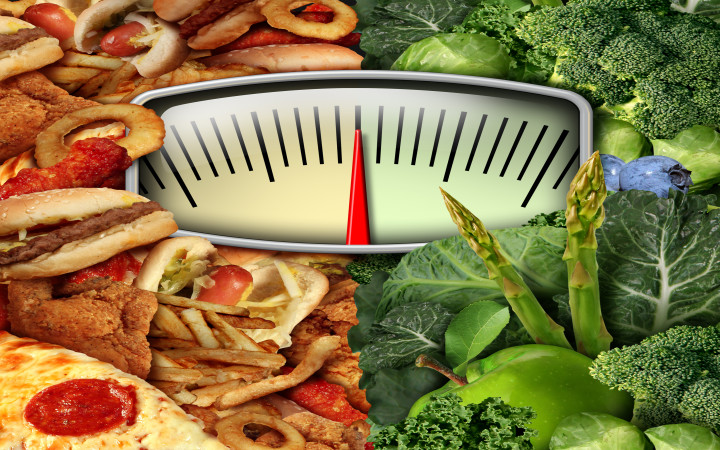Today’s Wonder of the Day was inspired by kade. kade Wonders, “why does food make you gain wheight” Thanks for WONDERing with us, kade!
Do you enjoy eating? Who doesn't, right? After all, it's something we do every day, multiple times a day, on a regular basis. We do it to survive, of course, but we humans have made the task of eating into something pleasurable and fun to do. Why else were candy and ice cream invented?
If you've ever been really hungry, you might have felt like you could eat an entire pizza by yourself. If you like breadsticks, you might have had a few of those, too. How about throwing in a cheeseburger, some French fries, and an ice cream sundae, too?
By now, you might be thinking that it doesn't sound like the best idea to eat all of that in one meal. In addition to a stomach ache, there's another thing you might expect to happen as a result of such a meal: gaining weight.
Sometimes you may look forward to gaining weight, because it means you're growing older and getting bigger. Eventually, though, we all reach the point where we're at a healthy weight for our bodies and we want to stay there. Continuing to gain weight can take its toll on our bodies and cause a wide variety of health problems.
So what's the deal? We have to eat food every day. Why does it have to cause us to gain too much weight, too? Why can't we just eat whatever we want whenever we want with no worries about our weight?
We eat food every day to fuel our bodies. Think about all the things you do every day. From getting up and going to school to studying, riding your bike, and having fun with your friends, your body needs a lot of energy every day to do all the things you want and need to do.
The amount of energy you need varies by who you are and what you do. The more active you are, the more energy you need. When you run, jump, kick, and play, your body burns more fuel.
Scientists measure the amount of energy we need in units of measurement called calories. Instead of weight or length or volume, though, calories are units of energy. Although the amount needed varies individually, most school children need somewhere between 1,600-2,200 calories every day.
We get calories from the foods and drinks we take in each day. For example, each gram of carbohydrates you eat contains 4 calories. Proteins contain the same amount — 4 calories — per gram. Fats contain 9 calories per gram.
You might hear people talk about certain foods as being bad for you because they're high in calories. Calories themselves aren't good or bad, but eating too many foods that are high in calories can lead to weight gain.
When we eat more calories than we burn off over the course of the day, our bodies store those extra calories, usually in the form of fat. Over time, that fat builds up and we gain weight. On the other hand, if we eat fewer calories than we burn, then our bodies convert some of that stored fat back into the energy our bodies need to perform everyday functions. When this happens, we lose weight.
Do you need to keep a close eye on how many calories you're taking in every day? Probably not! Most kids don't need to worry about counting calories. Eating a well-balanced diet and getting plenty of exercise are all most kids need to stay at a healthy weight.





